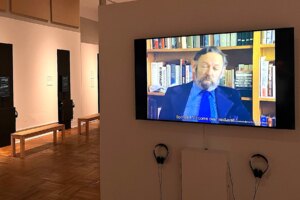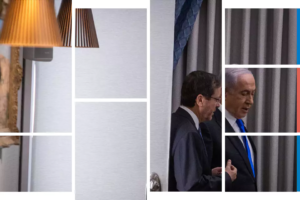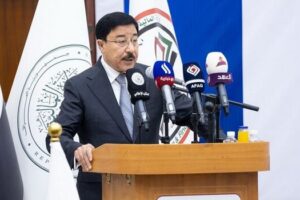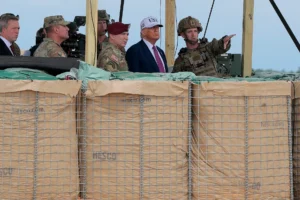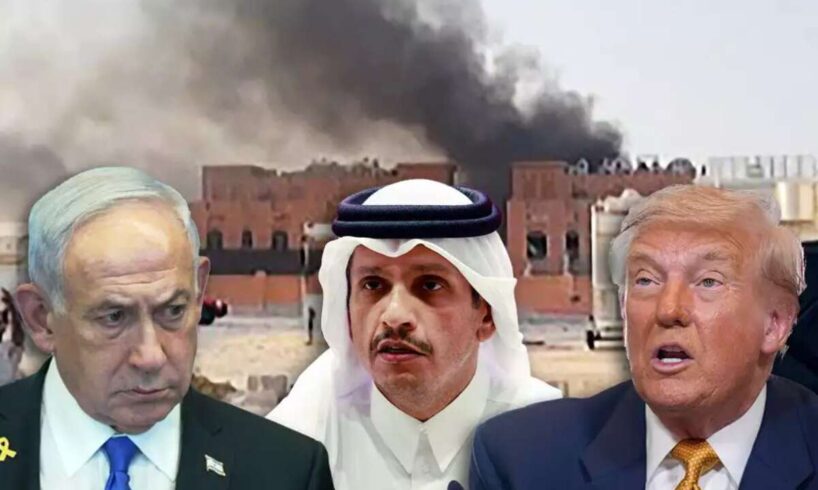
The decision to target senior Hamas officials in Qatar was made during a cabinet meeting that extended into Shabbat on January 18, 2025, as Israel was preparing for a second hostage deal. The move was part of a broader package of measures intended to reduce the heavy security costs of releasing hundreds of terrorists as part of the deal.
The goal, according to the discussions, was to launch a series of unconventional operations meant to increase pressure on Hamas until it agreed to surrender and return the hostages. One of these nonconventional measures was the plan to strike Hamas’ leadership abroad.
In the months that followed, many cabinet ministers and most senior defense officials repeatedly stressed the need to target Hamas leaders overseas. Chief of Staff Lt. Gen. Eyal Zamir and other senior officers told the cabinet that the military campaign in Gaza had run its course, and that to increase pressure on Hamas to accept a deal, Israel had to hit its leadership abroad. Zamir even warned publicly two weeks ago that most of Hamas’ surviving leadership was abroad, declaring, “We will reach them too.”
Strike on Hamas leadership in Doha. Photo: AFP AFP
Mossad opposition – and tensions with Qatar
The Shin Bet fully supported the operation. The main opposition came from Mossad chief David Barnea, whose agency maintains close ties with Qatar. Barnea argued that Israel could not simultaneously rely on Qatar as a mediator and strike it at the same time. In response, Transport Minister Miri Regev said Hamas’ external leadership was obstructing the hostage deal and therefore justified as a target.
Mossad Director David Barnea with Qatari Prime Minister Mohammed bin Abdulrahman Al Thani. Photo: Gideon Markowicz / AFP Gideon Markowicz / AFP
Because of the Mossad’s objections, the operation was carried out by the Israel Defense Forces and the Shin Bet. But intelligence gathering abroad is the Mossad’s exclusive domain, while the Shin Bet is responsible for domestic security. A source familiar with the details said the Mossad’s capabilities are far superior to the Shin Bet’s, and that this gap may explain the operation’s only partial success.
Trump’s position and leverage for a hostage deal
In the early cabinet discussions, ministers also raised concerns about the possible opposition of US President Donald Trump. Qatar is considered a key US ally and hosts the largest American military base in the Middle East. In addition, Trump places high importance on Qatar’s multi-trillion-dollar investments in the US economy. Against this backdrop, ministers agreed that the strike on Hamas leaders abroad would be presented to Trump as a lever to advance the hostage deal he strongly supports.
Trump, the strike in Qatar. Photo: EPA EPA
“Like the Munich 1972 assassinations”
Israeli officials attending the MEAD conference in Washington said the operation in Qatar was not directed at the host country itself but was the continuation of Israel’s declared policy to eliminate everyone involved in the October 7 massacre. They added that Qatar’s role in the hostage negotiations had no bearing on the decision.
The officials compared the move to Israel’s response to the massacre of its athletes at the 1972 Munich Olympics, when Israeli agents hunted down and assassinated those responsible across Europe. Similarly, they said, Israel is now settling accounts with Hamas leaders abroad who knew in advance about the October 7 massacre, funded it, and attempted to coordinate it with Hezbollah.
They added that the very fact that terrorist organizations are hosted in countries that consider themselves normative is unacceptable. “Would anyone agree to a PKK headquarters operating in Israel?” one speaker asked rhetorically, referring to the Kurdish militant group that fights Turkey.
The remarks were made overnight at the third annual MEAD conference in Washington, which brings together leading political figures from the US, Israel, and Arab and Muslim countries.
